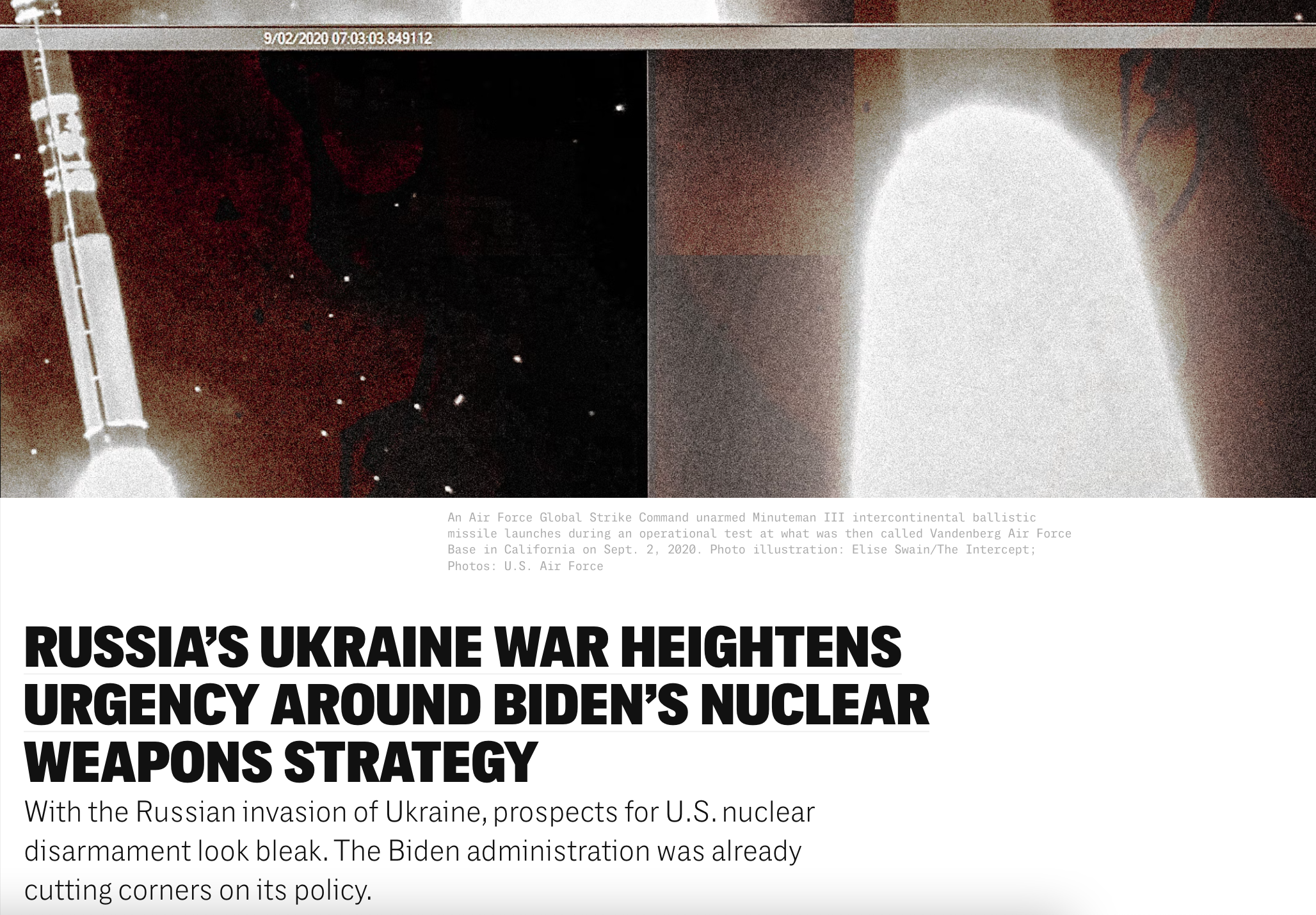The Smaller Bombs That Could Turn Ukraine Into a Nuclear War Zone
“Mr. Putin might fire a [nuclear] weapon at an uninhabited area instead of at troops…It feels horrible to talk about these things, but we have to consider that this is becoming a possibility.” — Ulrich Kühn, a nuclear expert at the University of Hamburg and the Carnegie Endowment for International Peace.
“Putin is using nuclear deterrence to have his way in Ukraine. His nuclear weapons keep the West from intervening.” — Nina Tannenwald, a political scientist at Brown University who recently profiled the less powerful armaments (so-called tactical nuclear weapons that can be launched on mobile short-range ballistic missile systems).
© NEW YORK TIMES By William J. Broad | March 21, 2022 nytimes.com

In destructive power, the behemoths of the Cold War dwarfed the American atomic bomb that destroyed Hiroshima. Washington’s biggest test blast was 1,000 times as large. Moscow’s was 3,000 times. On both sides, the idea was to deter strikes with threats of vast retaliation — with mutual assured destruction, or MAD. The psychological bar was so high that nuclear strikes came to be seen as unthinkable.
“Nuclear Weapons Must Be Eliminated, Not Reinforced”
STATEMENT BY MOST REVEREND JOHN C. WESTER ON WAR IN UKRAINE: “Nuclear Weapons Must Be Eliminated, Not Reinforced”
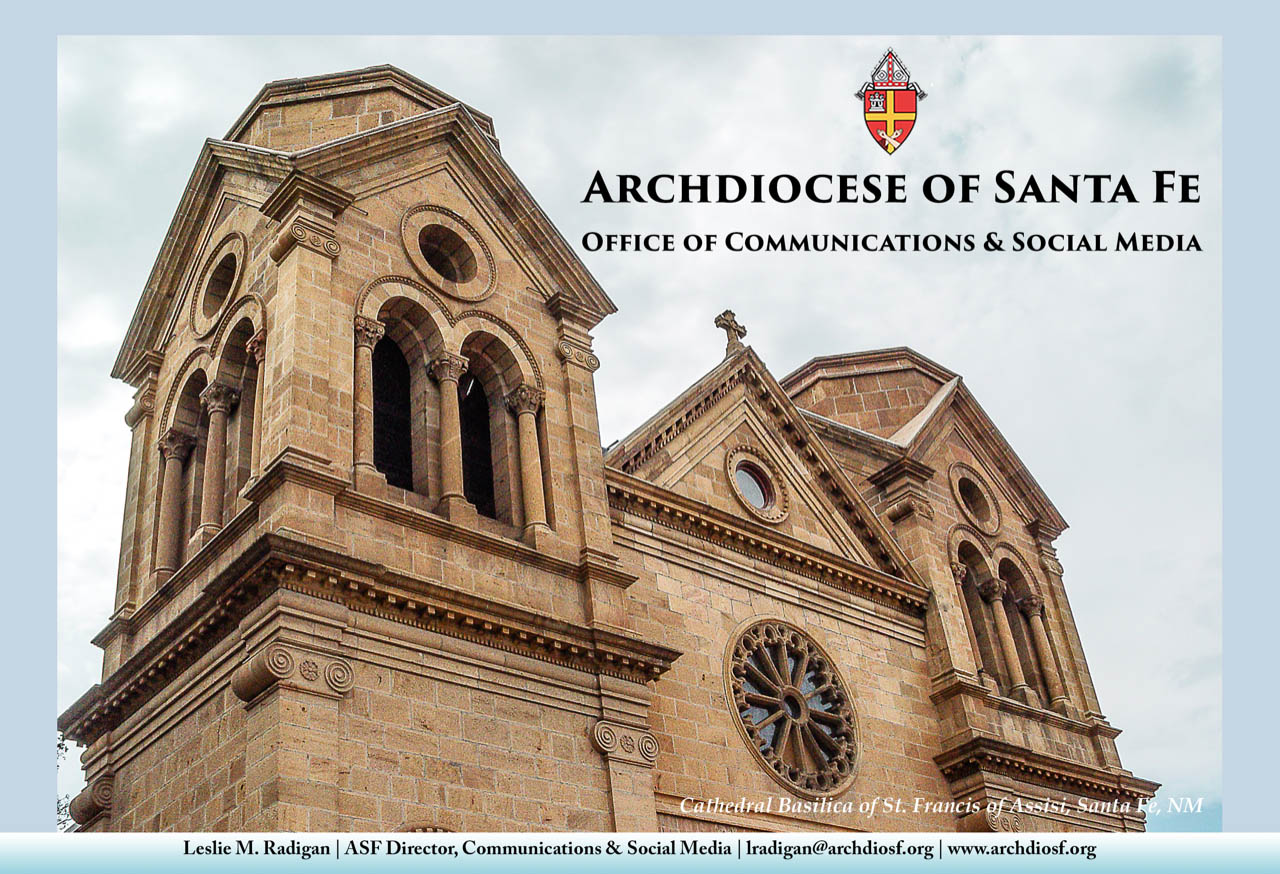
ALBUQUERQUE – Saturday, March 19, 2022 – IMMEDIATE RELEASE — Most Reverend John C. Wester, Archbishop of Santa Fe has made the following statement on the War in Ukraine:
We watch in horror as a brutal land war erupts, threatening all of Europe, which seems inconceivable after the end of the Cold War some thirty years ago. We pray for the safety and well-being of both Ukrainians and Russians and hope that God’s light and our own sanctified work towards justice and redemption can lead us to a lasting peace. In particular, we pray for the multitude of refugees and children who are having their lives destroyed by needless and unjustified violence. No matter what language they speak or which ruler they pledge allegiance to, may the Lord protect all of our brothers and sisters through the grace of God! This has been our intention during the novena for Ukraine that we are currently praying in the Archdiocese of Santa Fe.
Considering that letter and given the renewed fear of nuclear war that the Ukraine invasion has prompted, I feel compelled to address the important issue of nuclear disarmament.
I’m Worried About Ukraine, but it’s Not What You Think
“In the end, it is situations like the war in Ukraine that demonstrate exactly why we need to find ways to reduce and ultimately eliminate nuclear weapons.” – Dr. Tara Drozdenko of the Union of Concerned Scientists
By Tara Drozdenko, Director, Global Security Program | March 15, 2022 allthingsnuclear.org
As someone who works on nuclear weapons policy for a living, I’ve been getting questions from family and friends about the war in Ukraine and the risk of nuclear use. My colleagues are getting similar questions. Most of these questions boil down to, “Should we be worried?” or “How worried should I be?”
I think concern is a healthy response to this conflict. Russian President Vladimir Putin has issued veiled threats of nuclear use and neighboring Belarus has paved the way to host nuclear weapons on its territory. Things are tense. And if NATO countries were somehow pulled into the conflict—even by accident—there is some chance this war could turn nuclear. So far, the US and other NATO countries have been very careful that there not be any misunderstandings, including cancelling a planned test launch of a Minute Man III missile.
‘Limited’ Tactical Nuclear Weapons Would Be Catastrophic
Russia’s invasion of Ukraine shows the limits of nuclear deterrence
“Nuclear deterrence comes with tremendous risks and enormous costs. The arguments in favor of deterrence, although sometimes convincing, are not always true. We must acknowledge that nuclear deterrence could fail. That’s why, despite the trillions of dollars spent on nuclear arsenals, no one sleeps soundly under a nuclear umbrella—especially during a crisis such as Russia’s invasion of Ukraine.”
By Nina Tannenwald | March 10, 2022 scientificamerican.com
Since Russia invaded Ukraine on February 24, Russian President Vladimir Putin has given orders to increase the alert level of Russia’s nuclear forces and has made veiled nuclear threats. The blatant aggression against Ukraine has shocked Europe and the world. The war is a tragedy for Ukraine. It also exposes the limits of the West’s reliance on nuclear deterrence.
BREAKING: Russian President Vladimir Putin has ordered the military to put its nuclear forces on the highest level of alert in response to what he called “aggressive statements” by NATO countries.
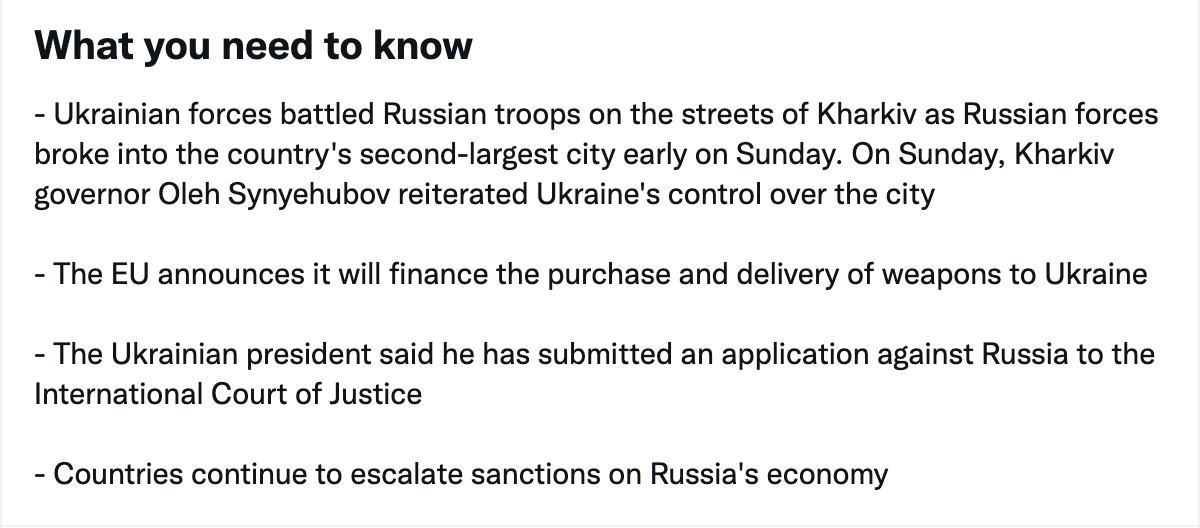
“In a shocking move that unearthed long-buried fears from the Cold War era, Putin ordered Russian nuclear weapons prepared for increased readiness to launch on Sunday, ratcheting up tensions with Europe and the United States over the conflict.
The Russian president told his defense minister and the chief of the military’s General Staff to put the nuclear deterrent forces in “special regime of combat duty.”
He said that leading NATO powers had made “aggressive statements” toward Russia in addition to stiff economic sanctions and cutting leading Russian banks from the SWIFT banking system.”
AP NEWS February 27, 2022 apnews.com
NATO Expansion: What Gorbachev Heard
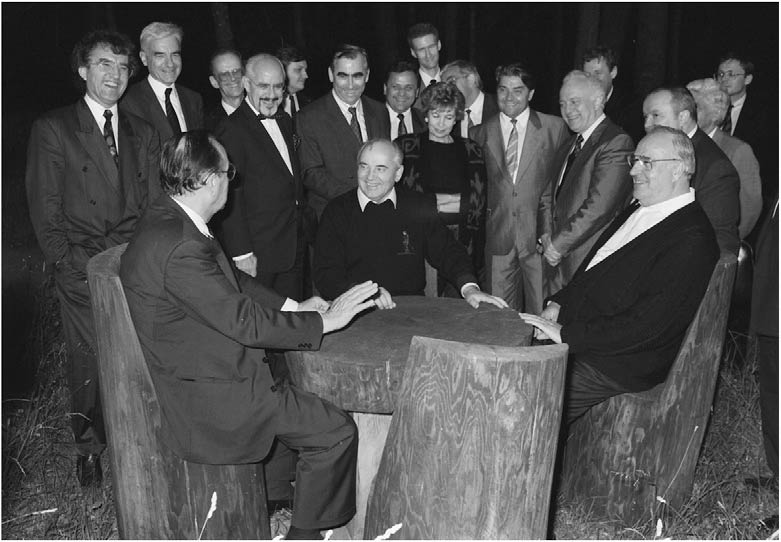
Declassified documents show security assurances against NATO expansion to Soviet leaders from Baker, Bush, Genscher, Kohl, Gates, Mitterrand, Thatcher, Hurd, Major, and Woerner
Slavic Studies Panel Addresses “Who Promised What to Whom on NATO Expansion?”
Washington D.C., December 12, 2017 – U.S. Secretary of State James Baker’s famous “not one inch eastward” assurance about NATO expansion in his meeting with Soviet leader Mikhail Gorbachev on February 9, 1990, was part of a cascade of assurances about Soviet security given by Western leaders to Gorbachev and other Soviet officials throughout the process of German unification in 1990 and on into 1991, according to declassified U.S., Soviet, German, British and French documents posted today by the National Security Archive at George Washington University (http://nsarchive.gwu.edu).
The documents show that multiple national leaders were considering and rejecting Central and Eastern European membership in NATO as of early 1990 and through 1991, that discussions of NATO in the context of German unification negotiations in 1990 were not at all narrowly limited to the status of East German territory, and that subsequent Soviet and Russian complaints about being misled about NATO expansion were founded in written contemporaneous memcons and telcons at the highest levels.
EXPLAINER: Does Putin’s alert change risk of nuclear war?
Russian President Vladimir Putin’s implied threat to turn the Ukraine crisis into a nuclear war presents President Joe Biden and U.S. allies with choices rarely contemplated in the atomic age. One choice is whether to raise the alert level of U.S. nuclear forces in response. Putin put Russian nuclear forces in what he called a “special regime of combat duty.”
By ROBERT BURNS | AP NEWS February 27, 2022 apnews.com
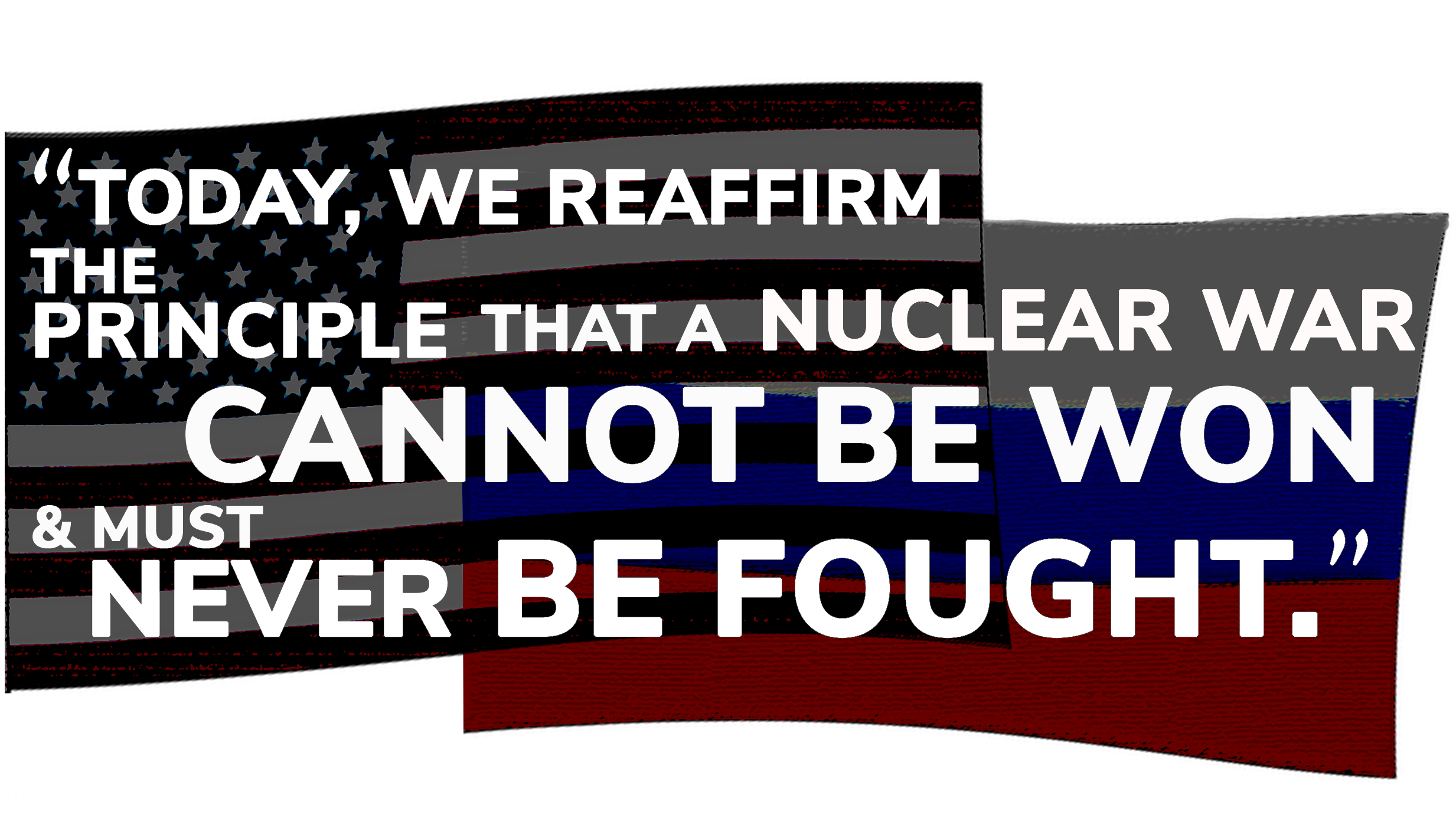 WASHINGTON (AP) — Russian President Vladimir Putin’s implied threat to turn the Ukraine war into a broader nuclear conflict presents President Joe Biden with choices rarely contemplated in the atomic age, including whether to raise the alert level of U.S. nuclear forces.
WASHINGTON (AP) — Russian President Vladimir Putin’s implied threat to turn the Ukraine war into a broader nuclear conflict presents President Joe Biden with choices rarely contemplated in the atomic age, including whether to raise the alert level of U.S. nuclear forces.
This turn of events is all the more remarkable for the fact that less than a year ago, Putin and Biden issued a statement at their Geneva summit that seemed more in keeping with the idea that the threat of nuclear war was a Cold War relic. “Nuclear war cannot be won and must never be fought,” they agreed.
Putin waves nuclear sword in confrontation with the West
“By merely suggesting a nuclear response, Putin put into play the disturbing possibility that the current fighting in Ukraine might eventually veer into an atomic confrontation between Russia and the United States.”
By JOHN DANISZEWSKI | AP NEWS February 25, 2022 apnews.com
WARSAW, Poland (AP) — It has been a long time since the threat of using nuclear weapons has been brandished so openly by a world leader, but Vladimir Putin has just done it, warning in a speech that he has the weapons available if anyone dares to use military means to try to stop Russia’s takeover of Ukraine.
The threat may have been empty, a mere baring of fangs by the Russian president, but it was noticed. It kindled visions of a nightmarish outcome in which Putin’s ambitions in Ukraine could lead to a nuclear war through accident or miscalculation.
“As for military affairs, even after the dissolution of the USSR and losing a considerable part of its capabilities, today’s Russia remains one of the most powerful nuclear states,” Putin said, in his pre-invasion address early Thursday.
By Sara Sirota | The Interecpt February 25, 2022 theintercept.com
AS THE WEEK BEGAN, nonproliferation advocates weren’t optimistic that President Joe Biden would stand by his early commitments to “reduce the role of nuclear weapons in our national security strategy.” He might reverse former President Donald Trump’s decisions to pursue a nuclear-armed, sea-launched cruise missile or to retain the B83 gravity bomb, the most destructive weapon in the U.S. nuclear arsenal, they thought. He might roll back Trump’s policy allowing a nuclear response to “significant non-nuclear strategic attacks” or even consider a coveted “no first use” policy that Biden had shown interest in as vice president. But prospects that he would do the heavier lifting and halt Northrop Grumman’s contract to replace the intercontinental ballistic missile system — considered one of the most dangerous and unnecessary weapons in the nuclear arsenal — were practically nonexistent. Combined with multiple other weapons programs, the brand-new ICBM system puts the U.S. in its largest nuclear modernization effort since the Cold War.
ORIGINAL ARTICLE (THE INTERCEPT)
Putin’s Nuclear Threat Sets the West on Edge
By promising a response “never seen” in history if other countries interfere in Ukraine, the Russian leader upended decades of relative stability.
By GARRETT M. GRAFF | WIRED February 24, 2022 wired.com
THE FIRST IMAGES out of Russia’s fresh invasion of Ukraine appeared to herald a fairly traditional land war: tanks battling, artillery firing, and planes swooping low over cities. But even as Western leaders moved to craft a strong response to Vladimir Putin’s unprovoked aggression, they did so warily, conscious that the dramatic escalation in Eastern Europe could spill over into two new domains with much larger implications for the world beyond: cyberspace and nuclear weaponry.
In his speech early Thursday morning, Moscow time, Putin announced what he called a “special military operation” and issued a stark warning against Western intervention.
“No matter who tries to stand in our way or all the more so create threats for our country and our people, they must know that Russia will respond immediately, and the consequences will be such as you have never seen in your entire history,”
He said, in remarks officially translated by the Kremlin that seemed to leave little doubt as to the threat of nuclear retaliation.

